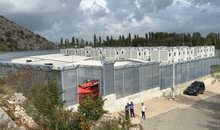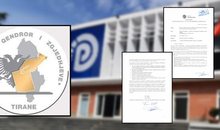
 Flash News
Flash News
Accident in Lushnje, four cars and a motorcycle involved
SPAK closed the investigations, Meta reacts: It was signed on the orders of Edi Rama
Defendant was taken from SPAK, Kryemadhi: Chief Prosecutor of BKH is Edi Rama
Laundered Çopjave money, arrested in Dubai Armis Stafa
The Democratic Party appeals the election results in Korça
Director of German foundation: EU is turning a blind eye to Rama's autocracy on asylum centers
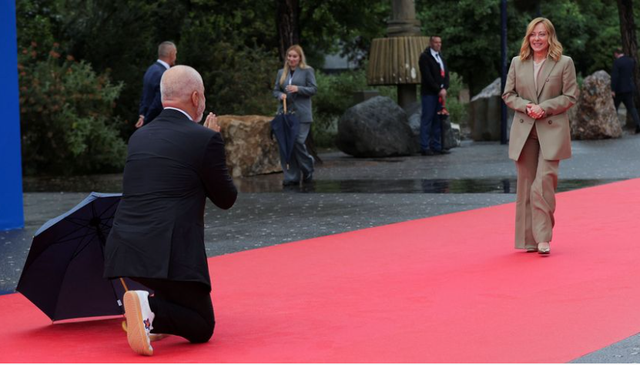
In an analysis published in one of the most prestigious German magazines, the director of the German Friedrich Ebert Foundation in Tirana, Katharina Hofmann De Maura, raises the alarm that the European Union is turning a blind eye to the autocracy of Prime Minister Edi Rama. The reason? The agreement with Italy to set up asylum centers in Albania, which she says has turned the country into a strategic partner for the EU even if it means tolerating state capture and links to organized crime.
Edi Rama is not only the recently re-elected prime minister of Albania, but also an artist, former culture minister and former mayor of Tirana. He knows how to stage politics psychologically and visually – and he uses this talent deliberately. He is a master at presenting his country abroad as progressive and EU-friendly. At the recent summit of the European Political Community in Tirana, he knelt on the red carpet in front of Giorgia Meloni – currently the most powerful woman in Europe. Rama knows why: the gesture was calculated – Albania wants to join the European Union at all costs and is currently considered the most promising candidate. The opening of the first group of EU enlargement negotiations in October 2024 and the promise of membership by 2030 have caused enthusiasm. Four more groups are expected to open this year – a kind of “high-speed integration”. The Albanian population strongly supports membership and sees itself in every respect as part of the Western alliance – Albania is a member of NATO. This is of great value at a time of weakening geopolitical and economic power in Europe, especially in the context of the war in Ukraine.
Pak para samitit, më 11 maj, u zhvilluan zgjedhjet parlamentare në Shqipëri – një ngjarje që mori relativisht pak vëmendje nga publiku evropian. Megjithatë, rezultati ishte i jashtëzakonshëm: Edi Rama dhe Partia e tij Socialiste fituan zgjedhjet me 53 për qind të votave dhe siguruan 83 nga 140 vendet në Kuvend. Rama ndodhet kështu më i fortë se kurrë më parë në qendër të pushtetit të këtij vendi të vogël me vetëm dy milionë banorë. Në katër vitet e ardhshme do të sqarohet nëse BE do të pranojë një lider autokratik “light” apo një “stabilokrat” nga Ballkani brenda radhëve të saj. Ka argumente pro dhe kundër kësaj. Por Edi Rama ka një kartë në dorë: një zgjidhje të mundshme për dilemën emigratore evropiane. Qendrat jashtëterritoriale të dëbimit të Italisë në Shqipëri krijojnë një precedent për zhvendosjen e procedurave të azilit në një vend partner të BE-së. Italia dhe Shqipëria kanë një histori të gjatë bashkëpunimi migrator. Në vitet 1990, Shqipëria postkomuniste përjetoi një valë masive emigracioni, ndër të tjera edhe drejt Italisë. Italia ndihmoi shqiptarët e varfër dhe kështu lindi një marrëdhënie që Rama e quan “miqësi historike”. Mbi këtë bazë, procedurat e azilit pritet të zhvendosen nga Italia në Shqipëri.
Marrëveshja dypalëshe i lejon Italisë të transferojë deri në 36.000 persona në vit në dy qendra në Shqipëri, të cilat do të menaxhohen nga Italia, për të shqyrtuar kërkesat e tyre për azil – sipas planit. Kjo marrëveshje u promovua nga mbështetësit e saj si një zgjidhje "jo konvencionale" për problemin e migracionit të parregullt, por ajo përmban rreziqe të mëdha ligjore dhe të të drejtave të njeriut. Me gjithë shqetësimet se strehimi i emigrantëve nga vende të treta mund të bie ndesh me Kushtetutën shqiptare dhe të drejtën ndërkombëtare, marrëveshja u ratifikua në të dy vendet. Qeveria e djathtë italiane e përshëndeti këtë si një "hap historik". Institucionet e BE-së u informuan, por nuk morën pjesë në marrëveshje.
Transferimet e para ndodhën në tetor 2024: një anije e marinës italiane solli 16 emigrantë në Shqipëri. Sipas ligjit italian, çdo ndalim i kërkuesve të azilit duhet të miratohet nga një gjykatës; gjykatësi përkatës refuzoi dhënien e miratimit. Italia kishte klasifikuar vendet e origjinës së emigrantëve – Bangladeshin dhe Egjiptin – si "të sigurta", gjë që mundëson një procedurë të shkurtuar azili. Por vetëm dy javë më parë, Gjykata Evropiane e Drejtësisë kishte vendosur se një vend nuk mund të konsiderohet "i sigurt" nëse ka përjashtime. Duke iu referuar këtij vendimi, gjykata në Romë e shpalli procedurën e përshpejtuar, të paligjshme. Kërkuesit e azilit u hoqën nga procedura e përshpejtuar jashtë territorit dhe u përfshinë në procedurën e zakonshme të azilit në Itali. Një goditje e rëndë për Giorgia Melonin dhe për Edi Ramën.
The Italian government immediately appealed the court’s decision and tried to adapt the legal framework. But in subsequent cases of transfers – at the end of 2024 and in January 2025 – the Italian courts also refused to allow a total of 73 asylum seekers to stay in Albania. Within a few days, they were returned to Italy.
At the end of March 2025, Meloni announced that Albanian structures would in future be used as detention centres for deportation of people whose applications for protection in Italy had already been rejected. With this change, 40 men of various nationalities arrived in Albania in April – all with a final rejection decision. Under Italian law, they can be held in detention for up to 18 months, until their deportation is carried out.
For the first time, an EU member state is transferring rejected asylum seekers to a third country that is neither a country of origin nor a country of transit. European Commission President Ursula von der Leyen welcomed the pact between Italy and Albania as an example of "fair sharing of responsibilities" between the EU and partner countries.
Meloni’s staying in power depends on managing immigration. She won the election campaign on the promise of stopping illegal immigration to Italian shores – but so far has had no visible successes. Edi Rama could help her win again, and in return, she could help him fulfill his electoral promise – EU membership.
This membership, in the current state of Albania, is by no means self-evident, because the country’s institutional weaknesses are pronounced. The arrest of the mayor of Tirana in February was a very dark moment for the ruling Socialist Party (SP). Erion Veliaj – a member of the SP leadership and close to Rama – was accused by SPAK of corruption and organized crime and was arrested. He is accused of taking bribes on nine occasions, money laundering and concealing income.
Reports from well-known international organizations prove that Albania is a "center" of international organized crime, and in this regard, its geographical position plays a central role.
Albania's access to the Adriatic and global maritime trade flows creates the conditions for illicit trade. In particular, cocaine from Ecuador is identified as a source of income for Albanian criminal networks. This money is laundered in the construction sector, which becomes visible to the population in the form of modern, but often uninhabited, buildings – and leads to surreal real estate prices.
Fuel and food prices are also high, while wages remain low. Booming tourism is positive for the economy, but it also brings rising prices and creates few jobs for locals.
Social security remains weak – a crucial indicator for EU enlargement, which has so far not been met.
Moreover, the country is facing a dramatic “brain drain.” Educated young people in particular are leaving – a loss of human capital that is self-reinforcing: without doctors, nurses and other professionals, the quality of life declines further. Albania may be politically on the path to Europe, but economically, socially and in terms of the rule of law it is in a severe test – and thus on shaky ground for credible EU membership.
But in times of political agreements like Trump's, the loss of domestic credibility and the standards of the rule of law are losing more and more importance. In Europe too, the "one hand washes the other" logic dominates: The pact between Giorgia Meloni and Edi Rama follows this model. Immigration becomes a political tool for exchange, and international norms are interpreted flexibly. Likewise, the new German government in the coalition agreement on EU enlargement has only said that the reform of the unanimity principle should have priority. However, it has not been explained how this reform can be implemented.
For Albania, it remains only to offer itself as a solution-oriented partner in the field of migration policy, in order to enable entry into the EU. What happens to people and how the interpretation of international law becomes implicit is something that seems to be acceptable. The irony of the Albanian course is peculiar and bitter: A country that itself suffered from mass emigration now accepts other immigrants – not for humanitarian reasons, but for geopolitical calculations. The formula is as follows: Others must leave the EU so that we can enter.
Latest news

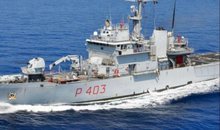
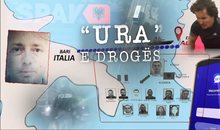
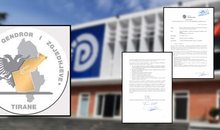

Italy/ 39-year-old Albanian man crashes to death while waiting to go to work
2025-05-27 20:15:03
SPAK's accusations against Meta, AP: Former president openly critical of Rama
2025-05-27 20:09:47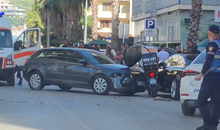
Accident in Lushnje, four cars and a motorcycle involved
2025-05-27 19:44:24


Rama eating pasta, photojournalist reveals the story behind the viral photo
2025-05-27 19:13:56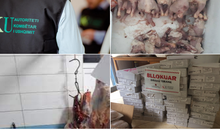
Meat with salmonella still on the market? AKU reacts: Fake news
2025-05-27 19:03:29
Violations of May 11, Lela: 'Database' ready, internationals are being informed
2025-05-27 18:47:40
Scandal with animal products in Kosovo, Minister of Agriculture questioned
2025-05-27 18:47:24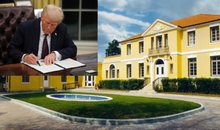
Congratulations... to the Albanian people
2025-05-27 18:20:00

"SP stole 2 mandates from us", Lapaj: Fier and Vlora regions must be recounted
2025-05-27 17:42:39

Kosovo takes control of another facility in Leposavic
2025-05-27 17:25:55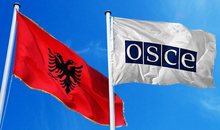


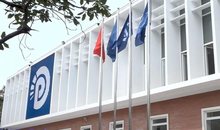
DP demands repeat elections in Gjirokastra and Vlora
2025-05-27 16:37:47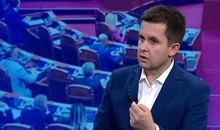
Should Berisha resign? Alimehmeti: Stages cannot be burned
2025-05-27 16:18:22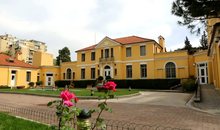


Sunscreen, five myths that endanger your health
2025-05-27 15:52:57

EC chief condemns Israeli attacks on Gaza: They are disgusting
2025-05-27 15:23:30

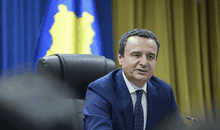

Defendant was taken from SPAK, Kryemadhi: Chief Prosecutor of BKH is Edi Rama
2025-05-27 14:47:32
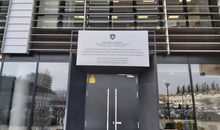
Police raid Kosovo's Ministry of Agriculture
2025-05-27 14:31:07
Laundered Çopjave money, arrested in Dubai Armis Stafa
2025-05-27 14:22:55
Tried to kill cousin in Italy? Case against Albanian from Kosovo closed
2025-05-27 14:12:33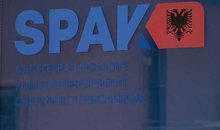
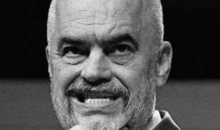
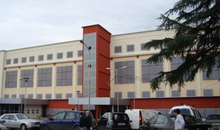

Prostitution network busted, Brazilian woman declared wanted
2025-05-27 13:31:20

SPAK took the defendant, Meta reacts: I eagerly await the start of the trial
2025-05-27 13:11:06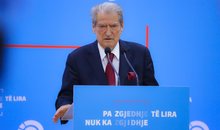

A party with a dead body inside
2025-05-27 12:51:40



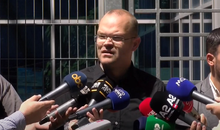
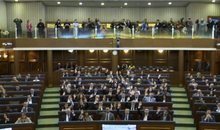
Session to constitute Kosovo Assembly fails for the 22nd time
2025-05-27 11:53:33
He passed away a few days ago, tributes are being held in honor of Artan Lame
2025-05-27 11:44:47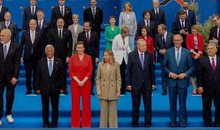
Reactions to Macron's slap
2025-05-27 11:32:35

Greek notary killed with intent to rob her, 3 Albanians arrested
2025-05-27 11:11:25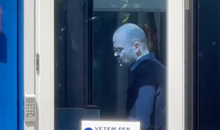
Aulona Kalaja appears at SPAK, files a complaint for the forgiveness of fines
2025-05-27 10:58:24

Meta will use Europeans' posts for AI training
2025-05-27 10:42:07

The Democratic Party appeals the election results in Korça
2025-05-27 10:23:11

Igli Tare appointed Milan Sporting Director
2025-05-27 10:03:54
Albanian caught with cocaine worth around 14 million euros
2025-05-27 10:00:56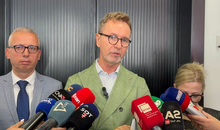

Foreign exchange/ How much foreign currencies are bought and sold today
2025-05-27 09:40:13

Brussels presents 150 billion euro plan to strengthen EU defense capabilities
2025-05-27 09:14:33

He raped his minor daughter, 60-year-old man arrested (NAME)
2025-05-27 08:57:54

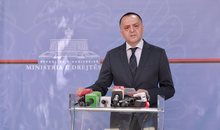
Artan Lame is being transported to his final residence today
2025-05-27 08:26:24
Horoscope, what do the stars have in store for you today?
2025-05-27 08:15:43
Weather forecast, sun and temperatures up to 29 degrees during the day
2025-05-27 08:01:32
Morning Post/ In 2 lines: What mattered yesterday in Albania
2025-05-27 07:47:24
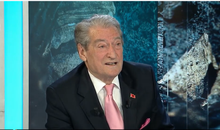




WHO calls for medical aid trucks to be allowed into Gaza
2025-05-26 21:46:31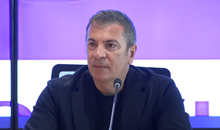
Did he want to burn it by running in Vlora? Gjiknuri: Rama experimented
2025-05-26 21:39:25


REL: Serbian police order for the arrest of Kosovo policeman, "very unreal"
2025-05-26 21:01:48

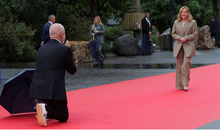

Milan officially announces the appointment of Igli Tara as Sporting Director
2025-05-26 19:43:14
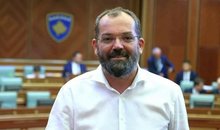
Former Kosovo MP released after being detained at border by Serbian authorities
2025-05-26 19:24:50
Magnificent buffet in Hanoi
2025-05-26 19:03:41

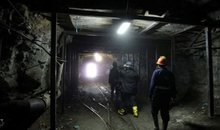

Migrant centers/ Kosovo government ready to discuss with the United Kingdom
2025-05-26 18:05:33

UN: Gaza in agricultural collapse, only 5% of land remains arable
2025-05-26 17:42:53
Former Ambassador: The US will react to the farce, it will upset many balances!
2025-05-26 17:34:26